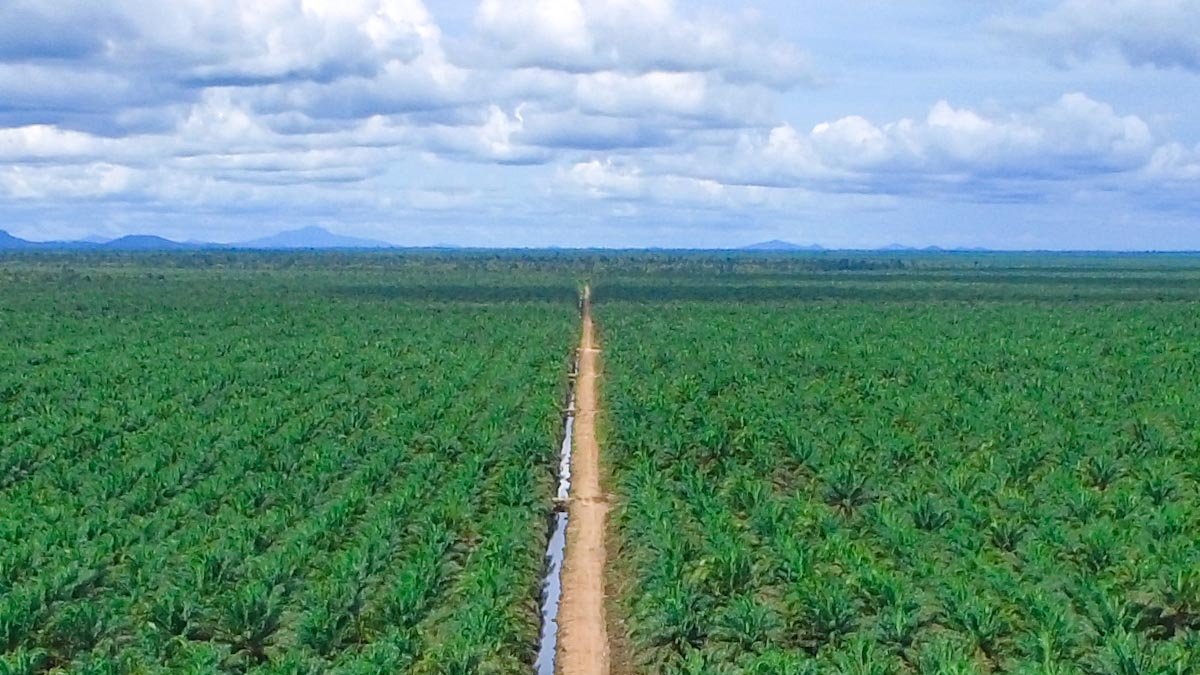PALMOILMAGAZINE, JAKARTA — The ongoing judicial review of Indonesia’s Law on the Prevention and Eradication of Forest Destruction (UUP3H) has once again drawn public attention, particularly regarding its impact on smallholder oil palm farmers who reside or operate in designated forest areas. These concerns were raised during a public forum organized by Sawit Watch, bringing together community leaders, legal experts, and environmental advocates.
Gunawan, Senior Advisor at the Indonesia Human Rights Committee for Social Justice (IHCS), explained that the judicial review submitted to the Constitutional Court is rooted in overlapping regulations and legal confusion. He pointed to the revisions made under the Omnibus Law on Job Creation (UUCK) and subsequent implementing rules like Government Regulation No. 24/2021.
“This issue was actually brought to the Supreme Court by Sawit Watch in 2023, but enforcement remained ineffective. Only a handful of cases were followed up. That’s why Presidential Regulation No. 5/2025 was later issued to establish a special task force for forest area enforcement,” said Gunawan in an official statement received by Palmoilmagazine.com on Tuesday (July 29, 2025).
Also Read: Sawit Watch Files Judicial Review to Clarify Legal Status of Smallholders in Forest Areas
He noted that law enforcement has often failed to distinguish between criminal actors and local communities who deserve protection. When criminal sanctions are replaced wholesale with administrative ones, vulnerable groups—like smallholders—can still be penalized.
Gunawan outlined three major consequences of the current legal framework:
- Delays in agrarian reform due to unclear land status,
- Legal uncertainty for local communities, businesses, and international commitments such as ISPO, RSPO, and EUDR,
- A lack of solutions for long-established villages and farms located in forest areas.
He stressed that the Job Creation Law was designed to support investment, not farmers. “Many laws that protect farmers have been altered by UUCK. This is dangerous if rights like land reform are subordinated to investment logic. It should be the other way around—investment must respect rights,” he added.
Parubahan Hasibuan, Village Head of Ujung Gading Julu, North Padang Lawas, expressed deep concern over the situation. “We’ve lived on this land since before Indonesia’s independence. Now, it’s being labeled illegal because it’s within forest zones. We don’t know what to do. We just want our land to be recognized—unconditionally—so we no longer have to live in uncertainty,” he pleaded.
Echoing that sentiment, Ahmad Zazali, Chair of the Center for Legal Studies and Conflict Resolution (PURAKA), cited the situation in Tesso Nilo National Park, where residents had settled long before the area was declared a national park.
“Many accuse the locals of deforestation, but logging concessions were already damaging these forests between 1974 and 1979. People came in with land grants and permits, not through encroachment. Now they’re being evicted, while large companies nearby are left untouched,” he asserted.
Ahmad called for equal and inclusive dialogue to resolve conflicts. “Relocation is not the only option. We need case-by-case solutions that genuinely involve communities—without coercion.”
Meanwhile, Nora Hidayati from the HuMa Association highlighted the lack of formal recognition for Indigenous Peoples, largely due to the absence of a national Indigenous Peoples Law. “Current recognition is piecemeal and conditional. Yet Indigenous communities play a key role in forest conservation through their customary knowledge and governance,” she said.
Nora underscored that natural resource management must align with the constitutional mandate to serve the greatest welfare of the people. “If policies don’t fulfill that goal—for example, designating forests that criminalize residents or issuing permits that cause conflict—then they must be reviewed,” she concluded.
The discussion underscored growing concern that current forestry policies favor investment interests over the rights of local communities and Indigenous peoples. The judicial review is seen as a critical opportunity to redirect policy and strengthen legal protections for vulnerable groups living within forest zones. (P2)
